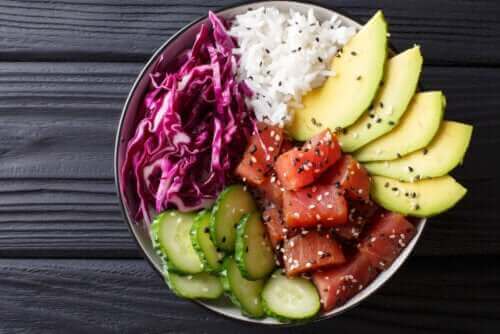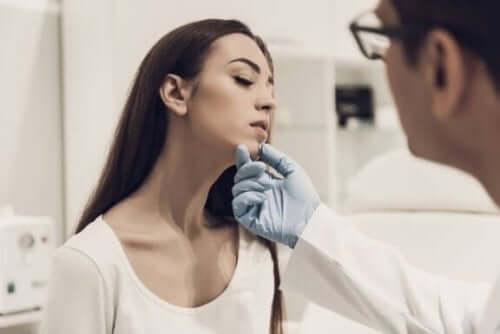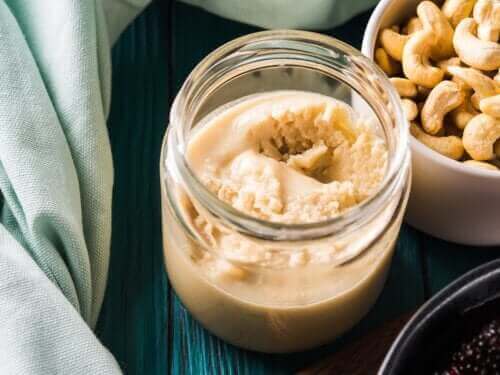5種讓頭髮長得更快的自然療法
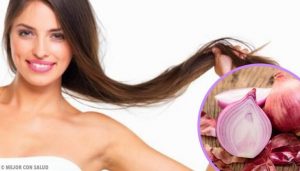
讓頭髮長得更快是一種令人沮喪的任務。
許多女性嘗試各種藥物、療法、美容護理,有些人甚至相信某些神奇方法,讓頭髮迅速生長。有些人選擇使用接髮,或者乾脆剪掉頭髮。
然而,雖然很多人認為頭髮很難生長,但加速頭髮生長是完全可能的。然而,要做到這一點,必須保持頭髮從髮根到髮梢的健康和營養。這樣,就不會有分岔的問題。
頭髮健康生長,就能抵抗任何外部因素,例如陽光、水、吹風機、直髮器和染髮劑等化學物質。幸運的是,有很多家庭療法不會傷害頭髮,其成分可以在冰箱或食品儲藏室找到。
接下來,我們將分享五種自然方法,讓你的頭髮生長更快。
幫助頭髮生長的自然方法
1. 橄欖油
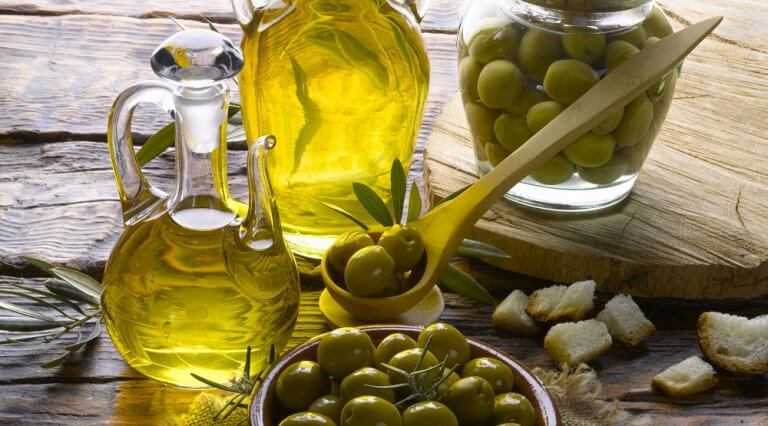
自從古希臘時期以來,橄欖油就一直用於健康和美容用途。橄欖油對頭髮非常有益。你只需要塗抹到頭髮上,靜置幾分鐘,然後沖洗乾淨。橄欖油有很多好處,包括:
- 維生素E含量高,促進毛髮生長。
- 以再生功效聞名。除了幫助生長,有助於頭髮纖維的再生。對於頭髮損傷、受損或乾燥來說非常適合。
- 橄欖油富含維生素C,能增加膠原蛋白。因此,有助於强化頭髮。維生素A的含量則有助於母細胞的產生和再生。
2. 每天梳頭髮
每天梳頭髮和其他家庭療法一樣有效。建議你每天慢慢刷頭髮三次。如果快速又粗心的梳頭髮,就會出現反效果。每天梳頭的好處是:
- 防止頭髮纏結、捲曲或不必要的毛躁。
- 刺激頭髮纖維,促進新髮的生長。
3. 馬鈴薯汁
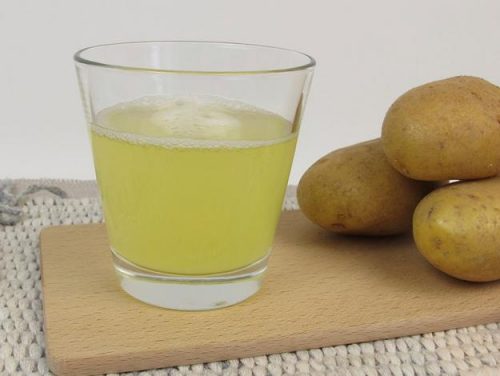
馬鈴薯汁的特性能讓頭髮生長得更快。一些好處包括:
- 增强頭皮和頭髮纖維。
- 避免掉髮。
- 促進新髮生長。
製作
- 清洗馬鈴薯,並正確去皮。
- 將馬鈴薯切成小塊。
- 將其放進果汁機中,製成泥狀。如果很黏稠,不要擔心。
- 加一點水。
- 在一個乾淨的容器中,用布過濾馬鈴薯泥。以便把需要用到的馬鈴薯汁分離。
- 將馬鈴薯汁塗抹到頭髮,並用環狀運動按摩頭皮。
- 靜置20到30分鐘。
- 用大量的水沖洗乾淨。
4. 洋蔥汁
洋蔥在健康方面有許多用途,可以作為化痰、治療燒傷,也可以增加身體的能量。洋蔥對頭髮的好處包括:
製作
- 將一些洋蔥加入水中煮沸。
- 煮沸後靜置幾分鐘,讓洋蔥釋放汁液。
- 使其冷卻。
- 過濾洋蔥汁。
- 使用洋蔥汁清洗頭髮。
- 靜置幾分鐘。
- 使用一般洗髮乳沖洗乾淨。
5. 雞蛋髮膜
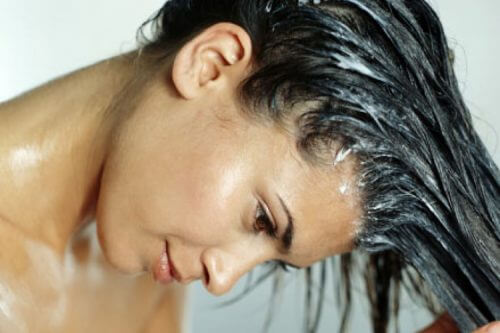
雞蛋含有維生素A、維生素B、維生素C和維生素E,以及鐵、鋅和鎂。因此,用這些營養素製成的面膜,能為頭髮提供極大的好處,其中包括:
- 促進毛髮生長。
- 由於高含量的生物素(維生素B8)和蛋白質,有助於頭髮纖維再生和新髮生長。
製作
- 打雞蛋,把蛋黃和蛋清混合在一起。
- 加一些油(你可以自選)。
- 混合。
- 將雞蛋髮膜塗抹到整個頭皮上(只包括髮根)。
- 靜置3到5分鐘。
- 用水沖洗。
- 用一般洗髮乳清洗。
讓頭髮長得更快是一種令人沮喪的任務。
許多女性嘗試各種藥物、療法、美容護理,有些人甚至相信某些神奇方法,讓頭髮迅速生長。有些人選擇使用接髮,或者乾脆剪掉頭髮。
然而,雖然很多人認為頭髮很難生長,但加速頭髮生長是完全可能的。然而,要做到這一點,必須保持頭髮從髮根到髮梢的健康和營養。這樣,就不會有分岔的問題。
頭髮健康生長,就能抵抗任何外部因素,例如陽光、水、吹風機、直髮器和染髮劑等化學物質。幸運的是,有很多家庭療法不會傷害頭髮,其成分可以在冰箱或食品儲藏室找到。
接下來,我們將分享五種自然方法,讓你的頭髮生長更快。
幫助頭髮生長的自然方法
1. 橄欖油

自從古希臘時期以來,橄欖油就一直用於健康和美容用途。橄欖油對頭髮非常有益。你只需要塗抹到頭髮上,靜置幾分鐘,然後沖洗乾淨。橄欖油有很多好處,包括:
- 維生素E含量高,促進毛髮生長。
- 以再生功效聞名。除了幫助生長,有助於頭髮纖維的再生。對於頭髮損傷、受損或乾燥來說非常適合。
- 橄欖油富含維生素C,能增加膠原蛋白。因此,有助於强化頭髮。維生素A的含量則有助於母細胞的產生和再生。
2. 每天梳頭髮
每天梳頭髮和其他家庭療法一樣有效。建議你每天慢慢刷頭髮三次。如果快速又粗心的梳頭髮,就會出現反效果。每天梳頭的好處是:
- 防止頭髮纏結、捲曲或不必要的毛躁。
- 刺激頭髮纖維,促進新髮的生長。
3. 馬鈴薯汁

馬鈴薯汁的特性能讓頭髮生長得更快。一些好處包括:
- 增强頭皮和頭髮纖維。
- 避免掉髮。
- 促進新髮生長。
製作
- 清洗馬鈴薯,並正確去皮。
- 將馬鈴薯切成小塊。
- 將其放進果汁機中,製成泥狀。如果很黏稠,不要擔心。
- 加一點水。
- 在一個乾淨的容器中,用布過濾馬鈴薯泥。以便把需要用到的馬鈴薯汁分離。
- 將馬鈴薯汁塗抹到頭髮,並用環狀運動按摩頭皮。
- 靜置20到30分鐘。
- 用大量的水沖洗乾淨。
4. 洋蔥汁
洋蔥在健康方面有許多用途,可以作為化痰、治療燒傷,也可以增加身體的能量。洋蔥對頭髮的好處包括:
製作
- 將一些洋蔥加入水中煮沸。
- 煮沸後靜置幾分鐘,讓洋蔥釋放汁液。
- 使其冷卻。
- 過濾洋蔥汁。
- 使用洋蔥汁清洗頭髮。
- 靜置幾分鐘。
- 使用一般洗髮乳沖洗乾淨。
5. 雞蛋髮膜

雞蛋含有維生素A、維生素B、維生素C和維生素E,以及鐵、鋅和鎂。因此,用這些營養素製成的面膜,能為頭髮提供極大的好處,其中包括:
- 促進毛髮生長。
- 由於高含量的生物素(維生素B8)和蛋白質,有助於頭髮纖維再生和新髮生長。
製作
- 打雞蛋,把蛋黃和蛋清混合在一起。
- 加一些油(你可以自選)。
- 混合。
- 將雞蛋髮膜塗抹到整個頭皮上(只包括髮根)。
- 靜置3到5分鐘。
- 用水沖洗。
- 用一般洗髮乳清洗。
- Bae, S., Yoon, Y. G., Kim, J. Y., Park, I. C., An, S., Lee, J. H., & Bae, S. (2022). Melatonin increases growth properties in human dermal papilla spheroids by activating AKT/GSK3β/β-Catenin signaling pathway. PeerJ, 10, e13461. https://www.ncbi.nlm.nih.gov/pmc/articles/PMC9123888/
- Babadjouni, A., Pouldar Foulad, D., Hedayati, B., Evron, E., & Mesinkovska, N. (2021). The Effects of Smoking on Hair Health: A Systematic Review. Skin appendage disorders, 7(4), 251–264. https://www.ncbi.nlm.nih.gov/pmc/articles/PMC8280411/
- Barreto, T., Weffort, F., Frattini, S., Pinto, G., Damasco, P., & Melo, D. (2021). Straight to the Point: What Do We Know So Far on Hair Straightening?. Skin appendage disorders, 7(4), 265–271. https://www.ncbi.nlm.nih.gov/pmc/articles/PMC8280444/
- Bryant, E. (2021, 13 de abril). How stress causes hair loss. National Institutes of Health. https://www.nih.gov/news-events/nih-research-matters/how-stress-causes-hair-loss
- Cho, Y. H., Lee, S. Y., Jeong, D. W., Choi, E. J., Kim, Y. J., Lee, J. G., Yi, Y. H., & Cha, H. S. (2014). Effect of pumpkin seed oil on hair growth in men with androgenetic alopecia: a randomized, double-blind, placebo-controlled trial. Evidence-based complementary and alternative medicine : eCAM, 2014, 549721. https://www.ncbi.nlm.nih.gov/pmc/articles/PMC4017725/
- Dias, M. F. R. G., Loures, A. F., & Ekelem, C. (2021). Hair Cosmetics for the Hair Loss Patient. Indian journal of plastic surgery : official publication of the Association of Plastic Surgeons of India, 54(4), 507–513. https://www.ncbi.nlm.nih.gov/pmc/articles/PMC8719955/
- Gatherwright, J., Liu, M. T., Amirlak, B., Gliniak, C., Totonchi, A., & Guyuron, B. (2013). The contribution of endogenous and exogenous factors to male alopecia: a study of identical twins. Plastic and reconstructive surgery, 131(5), 794e–801e. https://pubmed.ncbi.nlm.nih.gov/23629119/
- Guo, E. L., & Katta, R. (2017). Diet and hair loss: effects of nutrient deficiency and supplement use. Dermatology practical & conceptual, 7(1), 1–10. https://www.ncbi.nlm.nih.gov/pmc/articles/PMC5315033/
- Hatsbach de Paula, J. N., Basílio, F. M. A., & Mulinari-Brenner, F. A. (2022). Effects of chemical straighteners on the hair shaft and scalp. Anais brasileiros de dermatologia, 97(2), 193–203. https://pubmed.ncbi.nlm.nih.gov/35058079/
- Hornfeldt C. S. (2018). Growing evidence of the beneficial effects of a marine protein-based dietary supplement for treating hair loss. Journal of cosmetic dermatology, 17(2), 209–213. https://pubmed.ncbi.nlm.nih.gov/28921826/
- Hwang, S. B., Park, H. J., & Lee, B. H. (2022). Hair-Growth-Promoting Effects of the Fish Collagen Peptide in Human Dermal Papilla Cells and C57BL/6 Mice Modulating Wnt/β-Catenin and BMP Signaling Pathways. International journal of molecular sciences, 23(19), 11904. https://www.ncbi.nlm.nih.gov/pmc/articles/PMC9569759/
- Kim, I. H., Kim, T. Y., & Ko, Y. W. (2016). The effect of a scalp massage on stress hormone, blood pressure, and heart rate of healthy female. Journal of physical therapy science, 28(10), 2703–2707. https://www.ncbi.nlm.nih.gov/pmc/articles/PMC5088109/
- Koyama, T., Kobayashi, K., Hama, T., Murakami, K., & Ogawa, R. (2016). Standardized Scalp Massage Results in Increased Hair Thickness by Inducing Stretching Forces to Dermal Papilla Cells in the Subcutaneous Tissue. Eplasty, 16, e8. https://www.ncbi.nlm.nih.gov/pmc/articles/PMC4740347/
- Lee, B. H., Lee, J. S., & Kim, Y. C. (2016). Hair Growth-Promoting Effects of Lavender Oil in C57BL/6 Mice. Toxicological research, 32(2), 103–108. https://www.ncbi.nlm.nih.gov/pmc/articles/PMC4843973/
- Murphrey M., B., Agarwal, S., Zito, P., M. (2022, 8 de agosto). Anatomy, Hair. StatPearls. https://www.ncbi.nlm.nih.gov/books/NBK513312/
- Natarelli, N., Gahoonia, N., & Sivamani, R. K. (2023). Integrative and Mechanistic Approach to the Hair Growth Cycle and Hair Loss. Journal of Clinical Medicine, 12(3), 893. https://www.mdpi.com/2077-0383/12/3/893
- Oh, J. Y., Park, M. A., & Kim, Y. C. (2014). Peppermint Oil Promotes Hair Growth without Toxic Signs. Toxicological research, 30(4), 297–304. https://www.ncbi.nlm.nih.gov/pmc/articles/PMC4289931/
- Panahi, Y., Taghizadeh, M., Marzony, E. T., & Sahebkar, A. (2015). Rosemary oil vs minoxidil 2% for the treatment of androgenetic alopecia: a randomized comparative trial. Skinmed, 13(1), 15–21. https://pubmed.ncbi.nlm.nih.gov/25842469/
- Park, S., & Lee, J. (2021). Modulation of Hair Growth Promoting Effect by Natural Products. Pharmaceutics, 13(12), 2163. https://www.ncbi.nlm.nih.gov/pmc/articles/PMC8706577/
- Peters, E. M. J., Müller, Y., Snaga, W., Fliege, H., Reißhauer, A., Schmidt-Rose, T., Max, H., Schweiger, D., Rose, M., & Kruse, J. (2017). Hair and stress: A pilot study of hair and cytokine balance alteration in healthy young women under major exam stress. PloS one, 12(4), e0175904. https://www.ncbi.nlm.nih.gov/pmc/articles/PMC5397031/
- Rajput R. J. (2022). Influence of Nutrition, Food Supplements and Lifestyle in Hair Disorders. Indian dermatology online journal, 13(6), 721–724. https://www.ncbi.nlm.nih.gov/pmc/articles/PMC9650738/
- Rizer, R. L., Stephens, T. J., Herndon, J. H., Sperber, B. R., Murphy, J., & Ablon, G. R. (2015). A Marine Protein-based Dietary Supplement for Subclinical Hair Thinning/Loss: Results of a Multisite, Double-blind, Placebo-controlled Clinical Trial. International journal of trichology, 7(4), 156–166. https://www.ncbi.nlm.nih.gov/pmc/articles/PMC4738482/
- Suleria, H. A., Osborne, S., Masci, P., & Gobe, G. (2015). Marine-Based Nutraceuticals: An Innovative Trend in the Food and Supplement Industries. Marine drugs, 13(10), 6336–6351. https://www.ncbi.nlm.nih.gov/pmc/articles/PMC4626693/
- Seo, H. M., Kim, T. L., & Kim, J. S. (2018). The risk of alopecia areata and other related autoimmune diseases in patients with sleep disorders: a Korean population-based retrospective cohort study. Sleep, 41(9), 10.1093/sleep/zsy111. https://pubmed.ncbi.nlm.nih.gov/29955877/
- Trüeb R. M. (2021). “Let Food be Thy Medicine”: Value of Nutritional Treatment for Hair Loss. International journal of trichology, 13(6), 1–3. https://www.ncbi.nlm.nih.gov/pmc/articles/PMC8647708/
- Wall, D., Meah, N., Fagan, N., York, K., & Sinclair, R. (2022). Advances in hair growth. Faculty reviews, 11, 1. https://www.ncbi.nlm.nih.gov/pmc/articles/PMC8808739/
- Yi, Y., Qiu, J., Jia, J., Djakaya, G. D., Li, X., Fu, J., … & Hu, Z. (2020). Severity of androgenetic alopecia associated with poor sleeping habits and carnivorous eating and junk food consumption-A web-based investigation of male pattern hair loss in China. Dermatologic therapy, 33(2), e13273. https://www.semanticscholar.org/paper/Severity-of-androgenetic-alopecia-associated-with-Yi-Qiu/57bbf1cdcabf9bdc75b038677b24f1bd1a35ec18
- Zink, A., & Traidl‐Hoffmann, C. (2015). Green tea in dermatology–myths and facts. JDDG: Journal der Deutschen Dermatologischen Gesellschaft, 13(8), 768-775. https://onlinelibrary.wiley.com/doi/full/10.1111/ddg.12737
- Trüeb RM, Henry JP, Davis MG, Schwartz JR. (2018). Scalp Condition Impacts Hair Growth and Retention via Oxidative Stress. Int J Trichology. 2018 Nov-Dec;10(6):262-270. https://www.ncbi.nlm.nih.gov/pmc/articles/PMC6369642/
此文本僅供資訊目的使用,並不取代與專業人士的諮詢。如有疑問,請諮詢您的專家。
